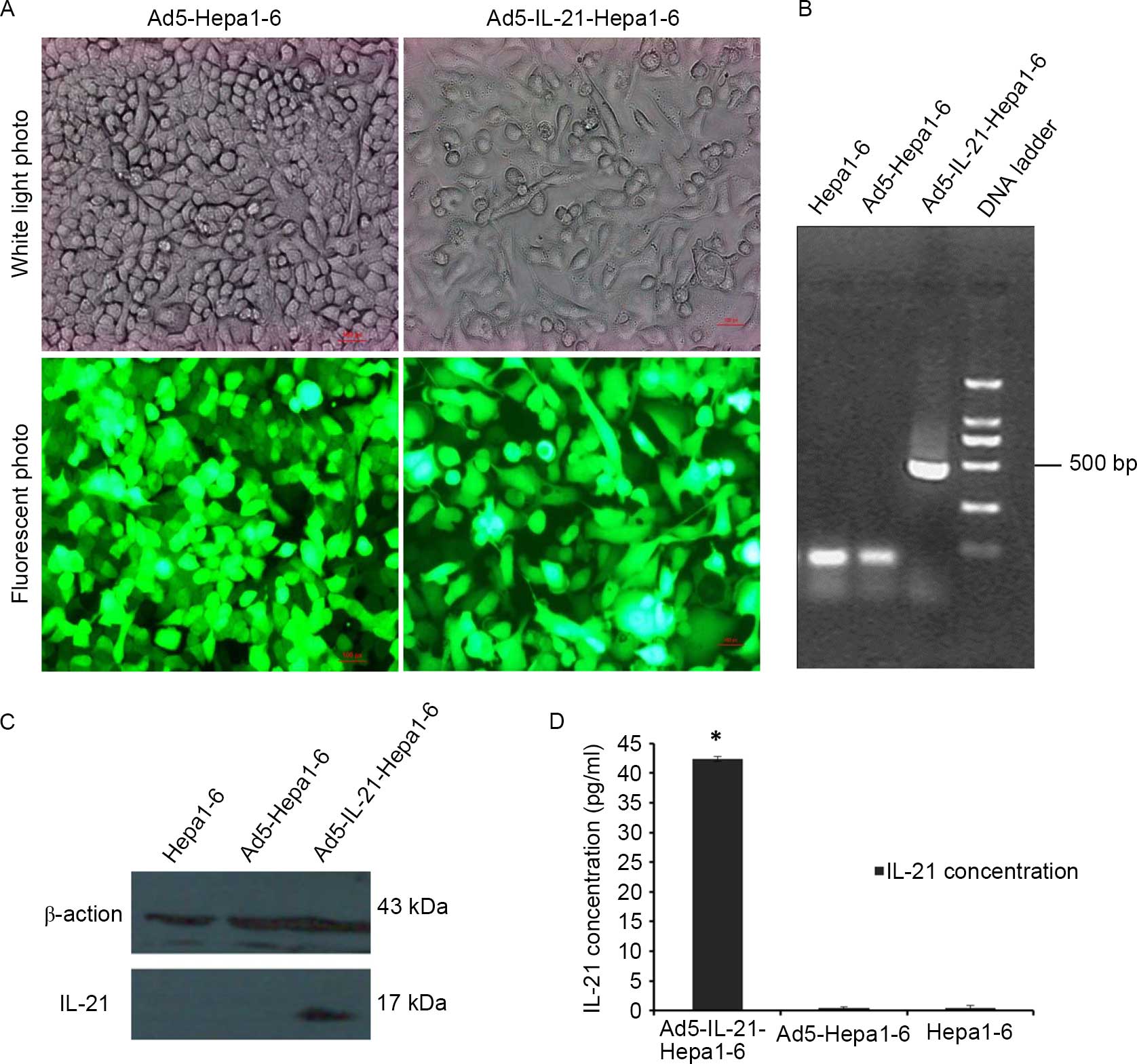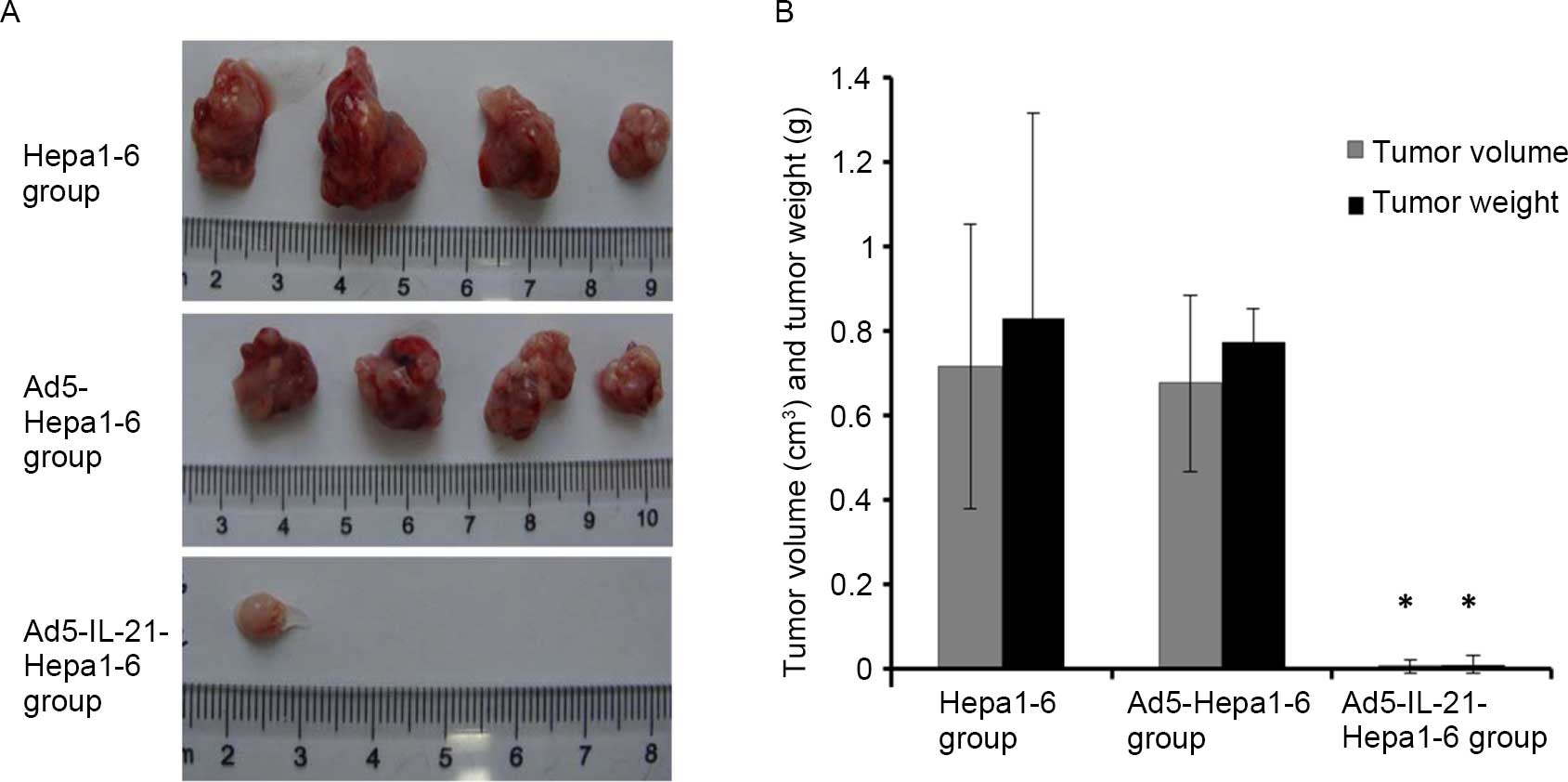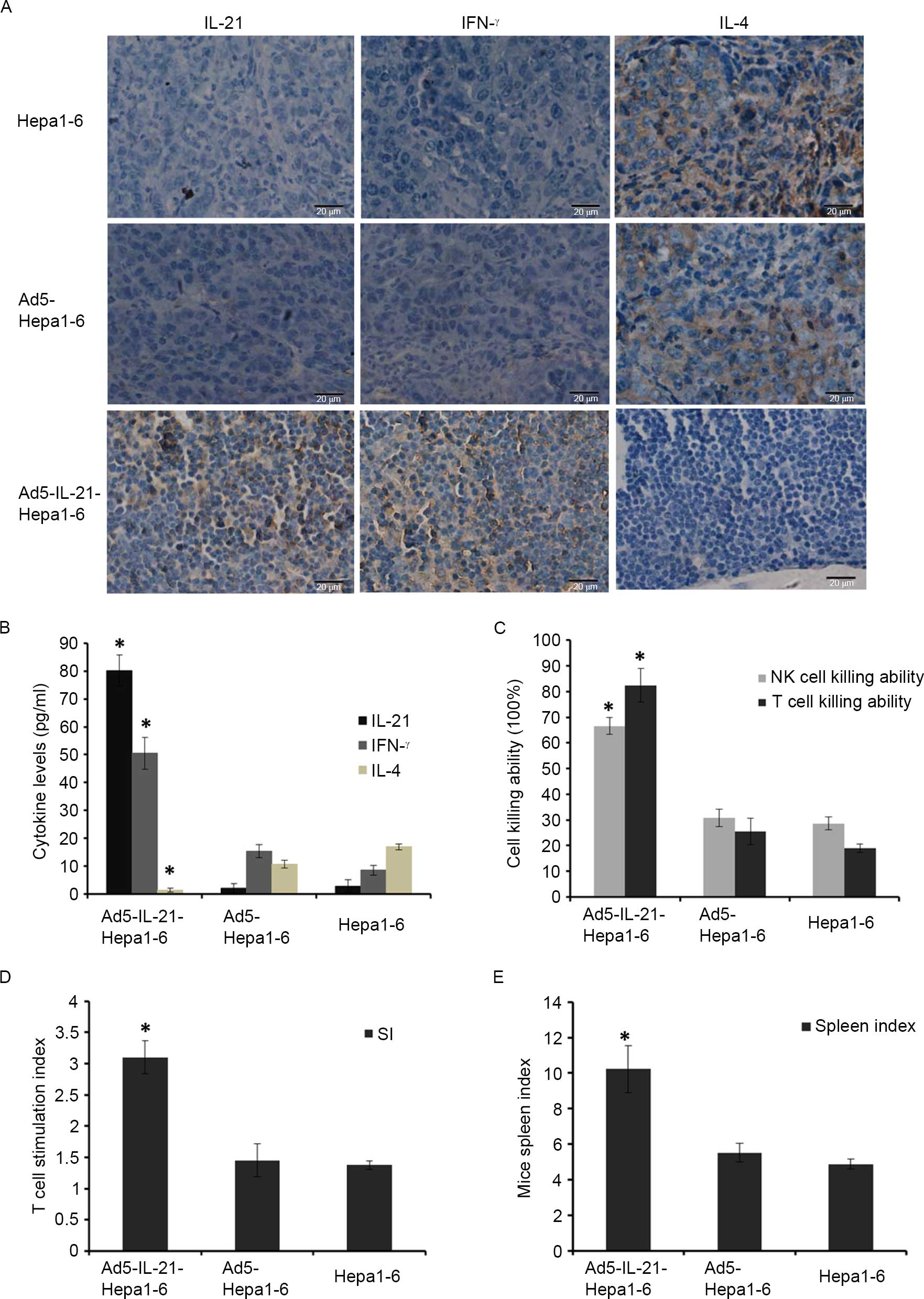|
1
|
Parrish-Novak J, Dillon SR, Nelson A,
Hammond A, Sprecher C, Gross JA, Johnston J, Madden K, Xu W, West
J, et al: Interleukin 21 and its receptor are involved in NK cell
expansion and regulation of lymphocyte function. Nature. 408:57–63.
2000. View
Article : Google Scholar : PubMed/NCBI
|
|
2
|
Bryant VL, Ma CS, Avery DT, Li Y, Good KL,
Corcoran LM, de Waal Malefyt R and Tangye SG: Cytokine-mediated
regulation of human B cell differentiation into Ig-secreting cells:
predominant role of IL-21 produced by CXCR5+T follicular helper
cells. J Immunol. 179:8180–8190. 2007. View Article : Google Scholar : PubMed/NCBI
|
|
3
|
Coquet JM, Kyparissoudis K, Pellicci DG,
Besra G, Berzins SP, Smyth MJ and Godfrey DI: IL-21 is produced by
NKT cells and modulates NKT cell activation and cytokine
production. J Immunol. 178:2827–2834. 2007. View Article : Google Scholar : PubMed/NCBI
|
|
4
|
Ertelt JM, Johanns TM, Rowe JH and Way SS:
Interleukin (IL)-21-independent pathogen-specific CD8+
T-cell expansion, and IL-21-dependent suppression of
CD4+ T-cell IL-17 production. Immunology. 131:183–191.
2010. View Article : Google Scholar : PubMed/NCBI
|
|
5
|
Liu Z, Yang L, Cui Y, Wang X, Guo C, Huang
Z, Kan Q, Liu Z and Liu Y: Il-21 enhances NK cell activation and
cytolytic activity and induces Th17 cell differentiation in
inflammatory bowel disease. Inflamm Bowel Dis. 15:1133–1144. 2009.
View Article : Google Scholar : PubMed/NCBI
|
|
6
|
Ruffin N, Lantto R, Pensieroso S,
Sammicheli S, Hejdeman B, Rethi B and Chiodi F: Immune activation
and increased IL-21R expression are associated with the loss of
memory B cells during HIV-1 infection. J Intern Med. 272:492–503.
2012. View Article : Google Scholar : PubMed/NCBI
|
|
7
|
Liu W, Dienz O, Roberts B, Moussawi M,
Rincon M and Huber SA: IL-21R expression on CD8+ T cells
promotes CD8+ T cell activation in coxsackievirus B3
induced myocarditis. Exp Mol Pathol. 92:327–333. 2012. View Article : Google Scholar : PubMed/NCBI
|
|
8
|
Hamming OJ, Kang L, Svensson A, Karlsen
JL, Rahbek-Nielsen H, Paludan SR, Hjorth SA, Bondensgaard K and
Hartmann R: Crystal structure of interleukin-21 receptor (IL-21R)
bound to IL-21 reveals that sugar chain interacting with WSXWS
motif is integral part of IL-21R. J Biol Chem. 287:9454–9460. 2012.
View Article : Google Scholar : PubMed/NCBI
|
|
9
|
Hashmi MH and Van Veldhuizen PJ:
Interleukin-21: updated review of Phase I and II clinical trials in
metastatic renal cell carcinoma, metastatic melanoma and
relapsed/refractory indolent non-Hodgkin's lymphoma. Expert Opin
Biol Ther. 10:807–817. 2010. View Article : Google Scholar : PubMed/NCBI
|
|
10
|
Thompson JA, Curti BD, Redman BG, Bhatia
S, Weber JS, Agarwala SS, Sievers EL, Hughes SD, DeVries TA and
Hausman DF: Phase I study of recombinant interleukin-21 in patients
with metastatic melanoma and renal cell carcinoma. J Clin Oncol.
26:2034–2039. 2008. View Article : Google Scholar : PubMed/NCBI
|
|
11
|
Kesselring R, Jauch D and Fichtner-Feigl
S: Interleukin 21 impairs tumor immunosurveillance of
colitis-associated colorectal cancer. Oncoimmunology. 1:537–538.
2012. View Article : Google Scholar : PubMed/NCBI
|
|
12
|
Cao FF, Yu S, Jiang ZY and Bao YX:
Diagnostic accuracy of Golgi protein 73 in primary hepatic
carcinoma using ELISA: a systematic review and meta-analysis. Clin
Lab. 60:587–597. 2014.PubMed/NCBI
|
|
13
|
Dongiovanni P, Romeo S and Valenti L:
Hepatocellular carcinoma in nonalcoholic fatty liver: role of
environmental and genetic factors. World J Gastroenterol.
20:12945–12955. 2014. View Article : Google Scholar : PubMed/NCBI
|
|
14
|
Grünwald V, Desar IM, Haanen J, Fiedler W,
Mouritzen U, Olsen MW and van Herpen CM: A phase I study of
recombinant human interleukin-21 (rIL-21) in combination with
sunitinib in patients with metastatic renal cell carcinoma (RCC).
Acta Oncol. 50:121–126. 2011. View Article : Google Scholar : PubMed/NCBI
|
|
15
|
Wood B, Sikdar S, Choi SJ, Virk S,
Alhejaily A, Baetz T and LeBrun DP: Abundant expression of
interleukin-21 receptor in follicular lymphoma cells is associated
with more aggressive disease. Leuk Lymphoma. 54:1212–1220. 2013.
View Article : Google Scholar : PubMed/NCBI
|
|
16
|
Pan XC, Li L, Mao JJ, Yao W, Zheng JN, Liu
M and Fu JJ: Synergistic effects of soluble PD-1 and IL-21 on
antitumor immunity against H22 murine hepatocellular carcinoma.
Oncol Lett. 5:90–96. 2013.PubMed/NCBI
|
|
17
|
Cheng M, Zhi K, Gao X, He B, Li Y, Han J,
Zhang Z and Wu Y: Activation of cellular immunity and marked
inhibition of liver cancer in a mouse model following gene therapy
and tumor expression of GM-SCF, IL-21, and Rae-1. Mol Cancer.
12:1662013. View Article : Google Scholar : PubMed/NCBI
|

















